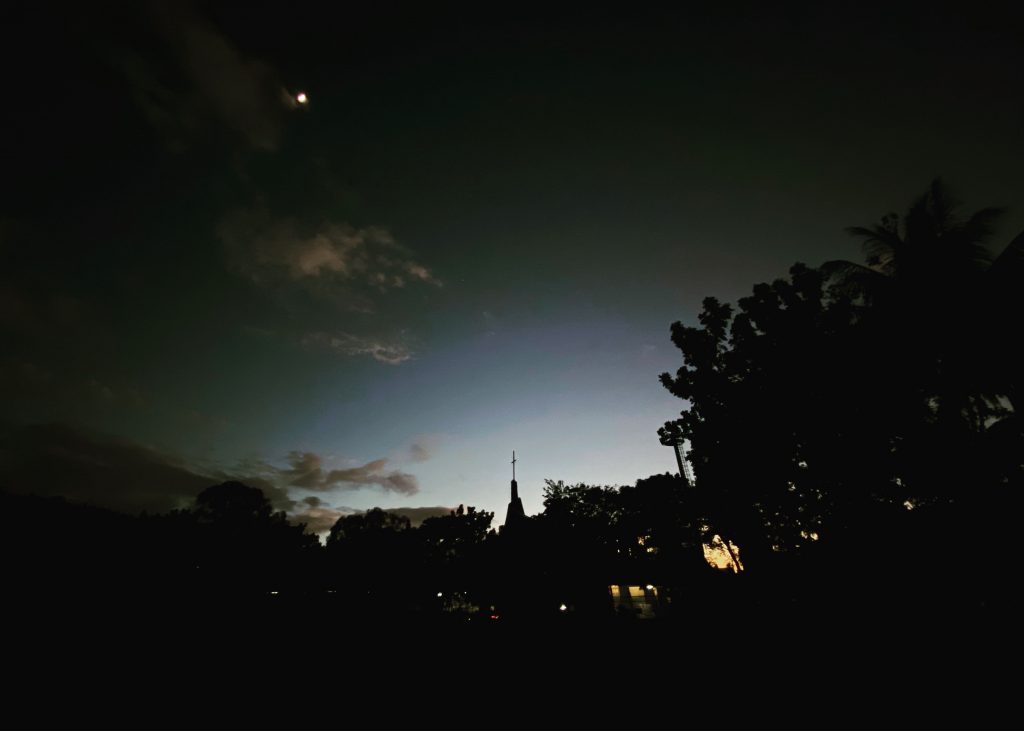
Reflection on the First Sunday of Advent
On this first Sunday of Advent marking the beginning of another liturgical year, it is most appropriate that we fondly reminisce the eternal compassion of our Father in heaven, and to recollect on what may perhaps be the deepest life-question anyone challenged to understand our faith would ask: who is God?
God is the Spirit who dwells in everything, but is at the same time, beyond everything. God is the enigma behind what constitutes the cosmos, and what moves it. God is its substance as well as its life, its body and soul. He is the encompassing omniscience that directs everything to its ordered ends, to its intended purposes. He is the both the path and its destination, the beginning and end.
When “order” retrogresses into “disorder”, God through cyclical movements perpetuated repeatedly in cosmic time, brings back and reorders “order”, such that the universe will always progress towards the state of balance and harmony he desires for eternity. Chaos, imbalance and discord will disturb it from time to time, but will never prevail. God is eternal order.
In this same light, we remember now with much introspection therefore the creative and redeeming nature of God in our humanity, the creative actions of this Spirit who formed us into what we are today; and the redeeming actions of this same Spirit, who will continually transform us into what we should become. Like clay in a potter’s hand, we are constantly shaped and reshaped by him into forms he deems worthy of himself.
In God’s hands, we are assured that not only did he wish to make us, but he is committed to save us from anything that will separate us from him. God brings life, God restores life, God is life.
Our Lord Jesus Christ became for us the visual personification of God: through him, we will best understand who God is. By exhortation and example, he demonstrated the creative and redeeming actions of our Abba: through his ministry, he showed us the God who gives life; through his crucifixion, he showed us the God who conquered death.
Jesus not only embodied the God who entered history, but also became the prophet-herald of the heavenly reign of this compassionate God. He staunchly spoke of a God who desired a kingdom of justice and peace which must be achieved through charity, service and mutual responsibility. He proclaimed the coming of the ultimate “order”, which can only be accomplished by us through the mystical process of reordering: through an understanding of his divine mercy, and through our response of penance and conversion.
As Christians, we believe that upon these moments of his death and resurrection, the process of reordering has begun. As Christians, we believe that reordering and the achievement of the “order” of the kingdom, are our life’s tasks. But are we awake? Are we fully aware of our life’s tasks? And must we do only these tasks when the Master is felt to be present? The test of our faith lies not in realizing the kingdom and serving God only because he is around, but in achieving our tasks simply because we want to do it for him – and for the love of him – whether or not he sees or hears us. Love is truly its own best witness.
So, we begin to reflect: Do we really love this eternally loving Father?
Brother Jess Matias is a professed brother of the Secular Franciscan Order. He serves as minister of the St. Pio of Pietrelcina Fraternity at St. Francis of Assisi Parish in Mandaluyong City, coordinator of the Padre Pio Prayer Groups of the Capuchins in the Philippines and prison counselor and catechist for the Bureau of Jail Management and Penology.
The views expressed in this article are the opinions of the author and do not necessarily reflect the editorial stance of LiCAS.news.
Source: Licas Philippines
0 Comments